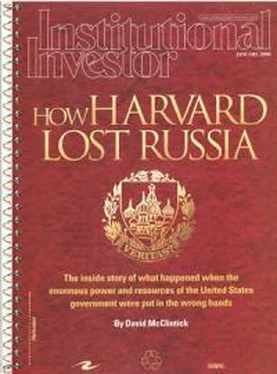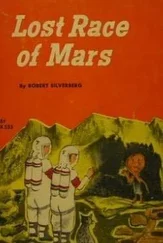When Bill and Hillary made the move from Little Rock to Washington, the territory under their influence was enlarged, and the public cash pots at their disposal grew significantly, but their modus operandi remained the same. The only thing that changed when Hillary began her adventures in the U.S. Senate, and then at the State Department, was that she was now the one with political power, and Bill became the ornamental figure.
Uranium One’s predecessor is a Canadian company, UrAsia Energy Ltd., founded in 2005 by Canadian mining financier Frank Giustra. By mysterious means Giustra was able to fill what was no more than a shell company with the rights to three uranium mines located in Kazakhstan, a former Soviet republic that is fantastically rich in just about everything, including uranium. Bill Clinton appears to have played a significant role in smoothing the rough edges of Giustra’s good fortune by supporting Kazakh President Nursultan Nazarbayev’s appointment to a U.N. agency dedicated to validating elections, a p.r. coup for Nazarbayev.
Thereafter, Bill got the use of Giustra’s luxurious private jet, and the two began jetting about the globe together to Third World countries that enjoy attractive endowments of natural resources. Bill made his speeches, and Frank made his deals.
In 2007, UrAsia purchased a South African uranium firm, Uranium One, and moved the company to Canada while retaining the firm’s South African name. Bill and Frank then set up their own philanthropic entity, the Clinton Giustra Sustainable Growth Initiative, to promote “progressive environmental and labor practices in the natural resources industry.” Giustra pledged $100 million and dragged in $16 million more in pledges at a 2008 star-studded gala in Toronto.
In 2008, things got more interesting. The Russian atomic-energy agency Rosatom, short of uranium for its own needs, entered into negotiations for a 17-percent stake in Uranium One. But in 2009, Kazakhstan questioned Uranium One’s claim of having obtained government approvals for UrAsia’s first mine purchases. The Kazakh government’s public doubts coincided with the arrest of Mukhtar Dzhakishev, the head of Kazatomprom (the country’s national importer and exporter of nuclear-fuel components), on charges of illegally selling uranium deposits to foreign companies.
Uranium One’s shareholders and principals were beside themselves. Would the company lose the Kazakh mines? Already, Uranium One’s stock value had collapsed by 40 percent. The Moscow investment bank Renaissance Capital was similarly alarmed since it had been heavily promoting Uranium One shares to its investors. Could some dastardly Russian scheme for control of Kazakh uranium assets be afoot? And was it possible that Vladimir Putin, who enjoys excellent relations with his Kazakh neighbor, and with President Nazarbayev personally, was the kingpin of the operation?
Now why would anyone think that?
The office of the presidency of the Russian Federation is relatively new, having come into existence a mere quarter century ago. Vladimir Putin’s interpretation of the office is shaping and defining it. He is the nation’s khozyain , a unique figure whose origins are in Russia’s misty past when the Slavic tribes roaming the great Eurasian steppe were among the freest people on earth. Unlike Western Europe, the tribal lord wasn’t an hereditary office, but one elected by the veche (popular assembly) in which each mature male householder of the votchina (estate) had a vote. When one khozyain ’s leadership delivered poor results, the votchina ’s electorate did not hesitate to replace him. And since each householder considered himself a rightful claimant to some part of the votchina ’s earnings, the criterion for political support was the shared prosperity and security of all claimants.
Vladimir Putin’s principal aim has been the restoration of the Russian state and economy, and for that the state must be protected from both invaders and usurpers. This requires an army, which, in turn, requires the state to have income—preferably income that is not derived from crushing both healthy competition and the population generally, as was true under the tsars and the commissars.
Thus we arrive at the 1999 Law on State Corporations that governs strategic industries and giants like Russian Railways, Sberbank, Rosneft, and Rosatom. Each corporation is created by separate legislation and escapes the scrutiny of the Federal Agency for State Property Management, being controlled instead by the Kremlin.
In the first years of Putin’s rule, Kremlin strategists puzzled over the best ways in which to invigorate the Russian economy. Where might they excel in this new, modern world in which post-Soviet Russia was struggling to find her footing? What was Russia good at? What could Russia provide the world besides oil and gas? The answer was bigness.
Enormity does give the Russians a special joy. The idea of bigness empowers them: the biggest country, the biggest dam, the biggest steel mill. When describing some aspect of their industries or their land to a visitor in terms of Big, they will sigh in exasperation because the guest clearly doesn’t grasp just how big Big is. The poet Lermontov captured the Russians’ proud defiance when he wrote, “We may be slaves, but we are enslaved by Russia, the ruler of the universe.”
Rosatom, a large state corporation built in 2007 out of the Soviet atomic industry’s degraded assets, exemplifies the Russian state’s policy of developing key strategic industries and infrastructure. These big state corporations are (at least in theory) positioned to enable and stimulate the rest of the economy; in turn, Rosatom’s (and similar firms’) corporate earnings support the state.
Rosatom’s projects are enormous, and the Russians have proved themselves quite adept at developing nuclear reactor technology as well as advanced safety technology and procedures. They are also quite capable of strengthening the country’s position in the global nuclear-energy market. The Kremlin’s idea of delivering nuclear-industry products to customers that cover the entire supply chain from raw uranium to a reactor’s final energy output is being realized, and Uranium One is a part of that story. It’s a story that began in Vancouver at the first Clinton-Yeltsin summit.
In April 1993, Americans were rightly concerned about nuclear proliferation, but wrongly focused on a contract Moscow had with Iran to build a nuclear reactor. In his memoir The Russia Hand , Strobe Talbott, Bill Clinton’s advisor on Russian affairs, insisted that this reactor, once completed, would “contribute to the covert nuclear-weapons program of a regime that supported international terrorism and violently opposed the Middle East peace process.”
The Russians knew the Iranians had no “covert nuclear-weapons program,” and that peace in the Middle East hinged more on Israel’s behavior than on Iran’s. Viktor Mikhailov, then-minister of atomic energy, refused to swallow what he said was Washington’s cover story to conceal its true aim: keeping Russia out of a legitimate market for nuclear technology. Russia needed income, and what Russia sold and to whom was none of Washington’s business.
That was hardly what the Americans expected to hear. Talbott quotes his then- assistant and future State Department Ukrainian strategist and outspoken E.U. supporter “Toria” Nuland: “See that’s how the Russians are. You try to get them to eat their spinach, and the more you tell them it’s good for them, the more they gag.”
After the first Chechen war erupted in 1994, the Iranian contract took on additional importance. Russia is home to the largest population of Muslims of any predominantly Christian country on earth. Concentrated in the Caucasus (Chechnya, Ingushetia, Dagestan, Circassia, Bashkiria, etc .), Islam’s centuries-old settlements and communities crawl northward along both sides of the Volga to Tatarstan, and westerly to Bashkortostan. Having already lost the buffer of Eastern Europe and nearly a third of the Soviet Union’s national territory, Russia Defense Minister Pavel Grachev warned Boris Yeltsin that if Chechnya broke free, there would be a domino effect in neighboring Muslim-dominated areas. Russia would run the risk of being cut in two.
Читать дальше






![Джонатан Димблби - Barbarossa - How Hitler Lost the War [calibre]](/books/385421/dzhonatan-dimblbi-barbarossa-how-hitler-lost-the-w-thumb.webp)





